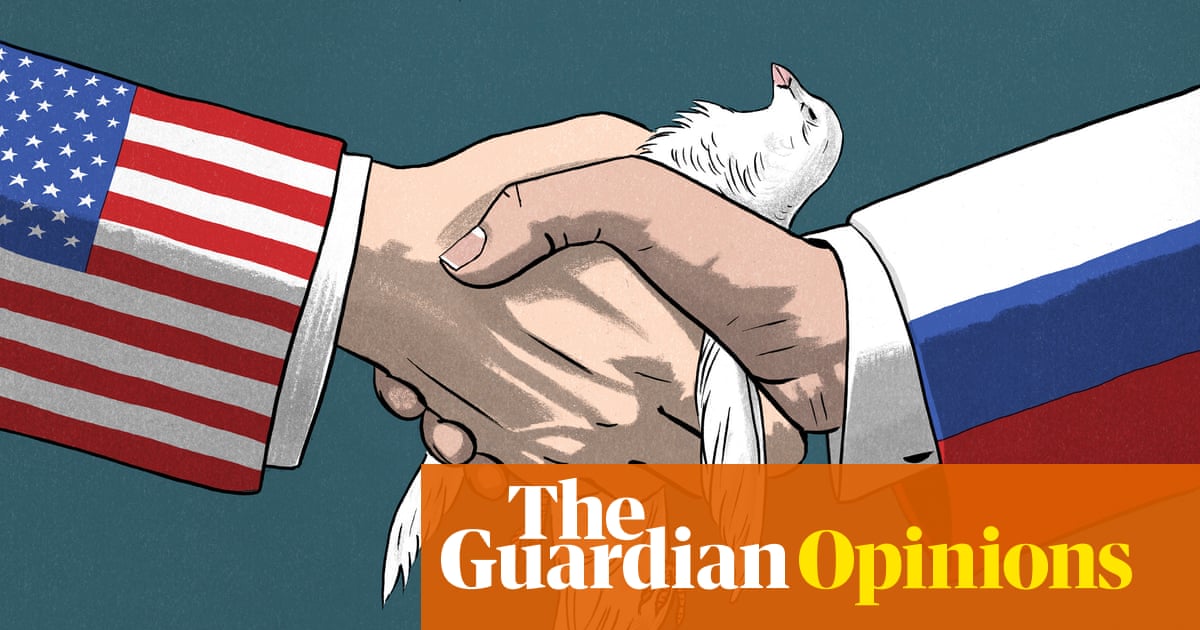Soon after Labour forms a government, it will find itself in a new world. It now seems likely that Donald Trump will win the presidency of the United States. If he does, this should bring an end to our abiding fantasies about a special relationship.
It was always an illusion. After the astonishing, heroic intervention of the US in the second world war preserved us from invasion and fascism, we built a romantic fairytale of enduring love. But both countries act in their own interests. While the UK and Europe have leant on the US for security, the dominant power has long used us as an instrument of policy.
Our joint enterprise has often been devastating to other people. Take, to give just a few examples, the US-UK coup that overthrew Mohammad Mosaddegh in Iran in 1953, the 20-year war in Afghanistan, the 2003 Iraq war, or the staunch support offered by Joe Biden and Rishi Sunak for the unfolding genocide in Gaza.
Our countries have also collaborated in developing a global trade and legal regime that favours capital over the democratic state. One example is the system known as investor-state dispute settlement, which grants offshore courts primacy over national sovereignty.
If Trump is installed in the White House again, the US government, always a questionable friend, is likely to become a clear threat to our peace, security and wellbeing. It will rip up what remains of global security and detente, environmental and human rights agreements, and international law. The age of multilateralism, flawed as it always was, would be over, and something much worse will take its place. In short, the UK and Europe will need to find the means of defending ourselves against a Trump regime and its allies. We might also need, as the lessons of the past century are unlearnt and the far right rises again, to defend ourselves against each other.
Trump has developed a special relationship; not with us, but with Vladimir Putin, to whom he defers as the iron dictator he would like to be. Russia sought to help Trump win in 2016, tried again in 2020 and has long backed Trump for 2024.
As if in return, when he was president, Trump announced that he trusted Putin ahead of US intelligence agencies. Subsequently, he praised Putin for his invasion of Ukraine, and has stated he would encourage Russia to attack any Nato member that doesnât spend heavily on defence.
One result of this special relationship is that Trump, if elected, is likely to end US military support for Ukraine. This means that if European nations donât step up, Putin will be able to complete his invasion. It seems unlikely that he will stop there. A Kremlin memo last year announced that Russia would take âsymmetrical and asymmetrical measures necessary to suppressâ such âunfriendly actsâ as the use of sanctions. In February, the Danish defence minister warned that Russia could launch an attack on a Nato country within five years. Poland, the Baltic states ⦠? With a supporter in the White House and the possible collapse of Nato, why would Putin not pursue his advantage?
Ukraineâs strongest ally in western Europe, Emmanuel Macron, is now flailing, while Putinâs friends in Hungary, Serbia, Bulgaria and Slovakia sense that history is on their side. When circumstances change, so should our positions, however disquieting it might be. I have long called for disarmament. This made sense when the Ministry of Defence concluded in 2003 that âthere are currently no major conventional military threats to the UK or Nato ⦠it is now clear that we no longer need to retain a capability against the re-emergence of a direct conventional strategic threatâ and when Nato decided a few years later that âlarge-scale conventional aggression against the alliance will be highly unlikelyâ.
But the situation has changed. With great discomfort, I find myself open to arguments for rearmament. I now believe we need to enhance our conventional capabilities, both to support other European nations against Russia and â something that seemed unimaginable a few years ago â perhaps to defend ourselves.
Currently, according to a former senior official at the MoD, the UKâs forces would be unable to âfight and win an armed conflict of any scaleâ. We would rapidly run out of ammunition, could not prevent missile strikes and could not stop an attack on our territory.
Conversely, this is also a good moment for the UK government to rethink its position on nuclear weapons. Itâs time to recognise that our âindependent nuclear deterrentâ has never been independent. Because key components are supplied and controlled by the US, we cannot operate it without US consent. So, if Trump regains the White House, it would not be a deterrent, either: Putin knows we cannot use it. The UKâs nuclear programme is a £172bn heap of bricks. Why waste more money on it?
We are faced throughout our lives with a choice of consistencies. Either our values or our positions can remain unchanged, but not both. Consistently defending our values â such as opposition to imperialism, fascism and wars of aggression â demands that we should be ready to alter our assessments as the nature of these threats changes.
The UKâs foreign policy will require other sharp turns. On Israel and Palestine, a Labour government should defend peace, justice and international law. Following Keir Starmerâs initial moral failure, Labourâs position has begun to change: David Lammy, the shadow foreign secretary, has said that if the international criminal court (ICC) issues an arrest warrant for Benjamin Netanyahu, he would be prepared to implement it. Now he should also demand a complete embargo of British arms to Israel.
As Trump rips up US environmental commitments, other countries will have to redouble theirs to avoid planetary catastrophe. It will do us no economic harm to embrace 21st-century technologies while the US remains in the fossil age. All this becomes especially urgent in the UK if that gurning minion of both Trump and Putin, Nigel Farage, achieves a foothold in politics. The collaborators are already lining up to betray their country.
Independence from the US is difficult, hazardous and uncertain of success. But remaining a loyal servant of the US if Trump becomes commander-in-chief is a certain formula for disaster. There is nothing we can do to stop his election, except to plead with US voters not to let a convicted felon, coup plotter, sex assaulter, liar, fraud and wannabe dictator into the White House. But we can seek to defend ourselves against it.
-
Do you have an opinion on the issues raised in this article? If you would like to submit a response of up to 300 words by email to be considered for publication in our letters section, please click here.



